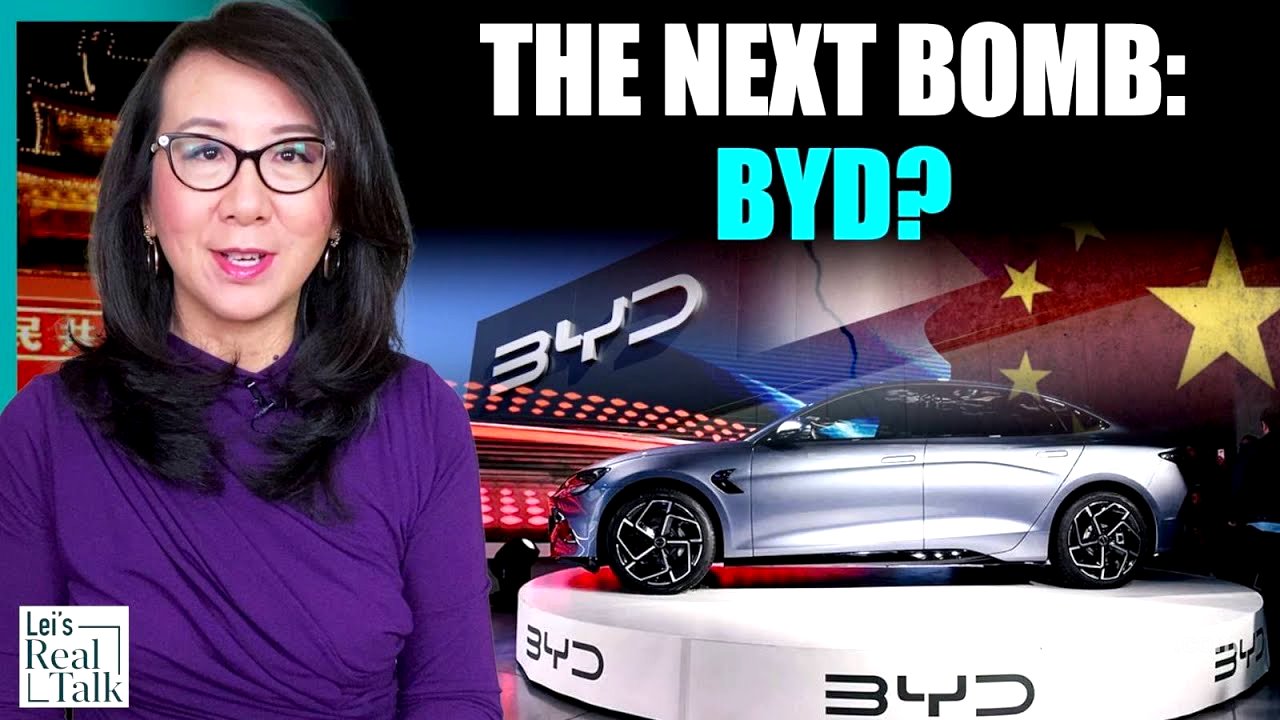TLDR;
This video discusses the precarious state of China's EV industry, particularly focusing on BYD, which is portrayed as a potential "Evergrande" of the auto sector. It examines the price war initiated by Tesla but largely driven by BYD, the company's hidden debt issues, and the potential consequences of BYD's default. The analysis includes insights from Chinese auto industry experts and financial analysts, highlighting the unsustainable practices and risks within the industry.
- BYD's aggressive price war is squeezing competitors and suppliers, leading to quality and safety concerns.
- The company's hidden debt, primarily through delayed payments to suppliers, poses a significant risk.
- Stagnant sales and declining consumer confidence are exacerbating the problems, potentially leading to a supply chain breakdown and bankruptcies.
Introduction: China's EV Industry and BYD [0:03]
The video introduces the topic of China's EV industry, with a focus on BYD, a flagship company heavily supported by the Chinese government to lead in global high-tech manufacturing. However, similar to China's real estate sector, the EV industry is now facing significant challenges. The discussion sets the stage to explore why BYD and the broader Chinese EV market could face a collapse akin to Evergrande's impact on the property market.
The Unprecedented Price War in China's Auto Industry [2:35]
Since January 2023, China's auto industry has been engaged in a fierce price war, initially triggered by Tesla but primarily driven by BYD. This price war has seen over 200 models involved, with an average price drop of 9.2% per vehicle in 2024 alone. The intense competition has led to declining profit margins, with some automakers losing money on each car sold. Despite Tesla starting the price war, BYD's central role has only recently come under public scrutiny, with industry executives now openly criticizing the company's aggressive strategies.
Criticism and Warnings from Industry Leaders [4:13]
Wei Jianjun, chairman of Great Wall Motors, was among the first to publicly criticize BYD, warning that the price war is unsustainable and forcing automakers to cut corners on safety and quality. He pointed out that significant price drops make it impossible to guarantee the quality of vehicles, potentially endangering consumers. Wei likened the situation to Evergrande, suggesting that BYD could trigger a collapse in the auto industry. Following Wei's statements, other industry leaders, including executives from Cherry and Geely, echoed these concerns, condemning the cutthroat competition and warning of a potential ecosystem-wide collapse.
BYD's Strategy and Government Backing [9:39]
Analysts suggest that BYD's aggressive price war is an attempt to monopolize the market and eliminate competitors. However, this strategy is squeezing not only rivals but also BYD's own dealers and suppliers. Similar to Evergrande, BYD appears to be betting on being "too big to fail," relying on government support to prevent its collapse due to its geopolitical importance. The price cuts are accumulating massive hidden debts for BYD, which could eventually lead to significant repercussions for the entire industry.
BYD's Debt Problem and Creative Accounting [10:47]
While Evergrande's debt problem was overt, with liabilities exceeding $330 billion USD, BYD's debt issues are more subtle and concealed. Although BYD's official debt-to-asset ratio appears manageable, a report by GMT Research in Hong Kong estimated that BYD's real net debt is significantly higher than reported, primarily due to overdue payables. BYD's low interest-bearing debt ratio, with only 5% of total liabilities being loans or bonds, indicates that the company is shifting its financial burden onto suppliers by delaying payments.
Exploiting the Supply Chain and the Dchain System [15:15]
BYD delays payments to suppliers, effectively borrowing time and credit from its supply chain rather than financial institutions. The company's average payment term is 275 days, significantly longer than global norms. To manage this, BYD uses a digital accounts payable certificate called Dchain, an electronic IOU that suppliers can sell to third parties for immediate cash at a discount. This system, while providing some relief to suppliers, erodes their profits and strains their cash flow, effectively turning these IOUs into interest-bearing debt on the suppliers' balance sheets.
Consequences of BYD's Potential Default [21:11]
If BYD defaults on its payables, the crisis would begin with its suppliers, leading to disruptions in production and car delivery schedules. This would then affect BYD's financial bottom line and lead to downstream defaults, creating a tangled web of cause and effect. The risk of a supply chain breakdown is growing as BYD has forced its suppliers to cut costs aggressively, with some already going out of business.
Stagnant Sales and Dealer Tactics [22:52]
BYD faces slowing demand, exacerbated by an overestimation of China's population size. To address this, BYD pushes sales targets downstream to dealers, resulting in excessive inventory. Dealerships have resorted to selling "zero-mile" new cars as used to hide sluggish sales, further damaging consumer confidence. This practice creates a vicious cycle of falling prices, falling sales, and falling trust in the market.
Government Intervention and Global Market Challenges [26:36]
The Chinese government has acknowledged the issues, with Beijing summoning top auto executives to demand self-discipline and halt irrational price cuts. However, domestic demand for BYD's new cars remains weak, and the global sales outlook is not promising. The US market is virtually closed, Japan and South Korea are preparing to restrict Chinese car imports, and opportunities in Southeast Asia have diminished. This has led to financial strain on BYD's dealership network, with some dealerships already going bankrupt.
State-Driven Industry and Quality Concerns [29:33]
China's EV sector mirrors its real estate industry, with deep government involvement leading to rigid controls and unsustainable practices. Concerns have grown about Chinese automakers cutting corners on safety, and after-sales service is reportedly poor due to quality issues. A recent cargo ship fire involving EVs has raised serious concerns about the quality, reliability, and safety of Chinese-made EVs, intensifying scrutiny of the industry.
Q&A: Addressing Viewer Questions [34:11]
The video concludes with a Q&A session, where the host addresses viewer questions on various topics, including the economic situation in Hong Kong, the potential for democracy in China, and the US government's debt. The host also discusses the Chinese perception of Donald Trump and the possibility of policy changes in China with leadership changes.








![AP Human Geography Unit 1 Live Review! [Thinking Geographically]](https://wm-img.halpindev.com/p-briefread_c-10_b-10/urlb/aHR0cDovL2ltZy55b3V0dWJlLmNvbS92aS8xZjVaR2Qwa3RZTS9ocWRlZmF1bHQuanBn.jpg)
